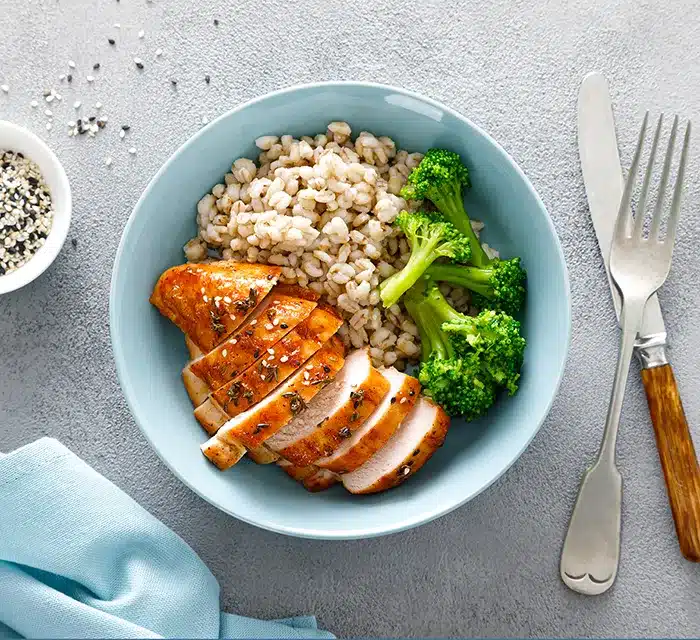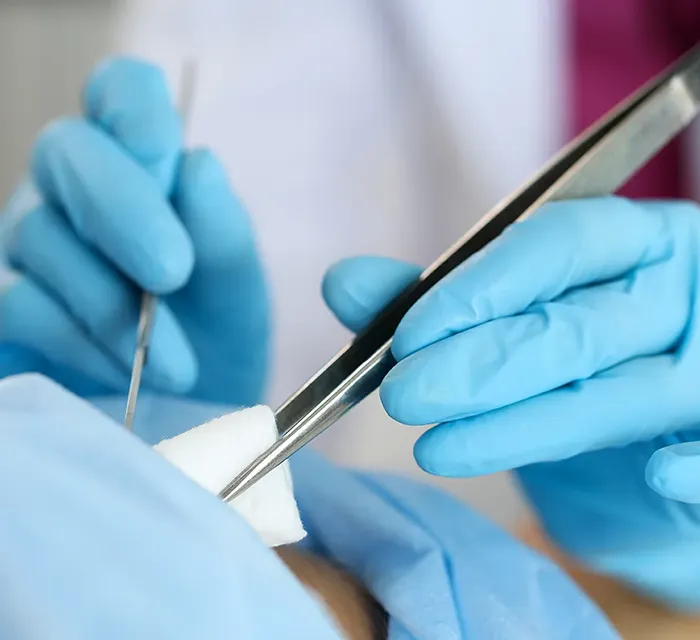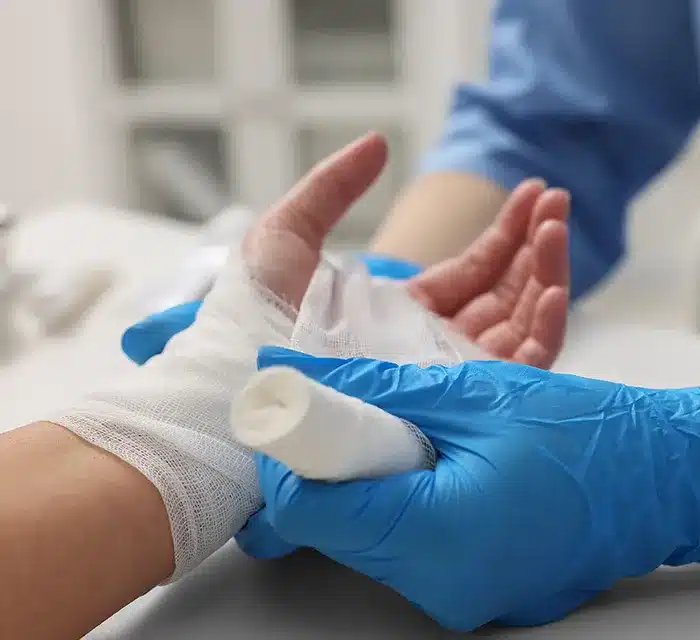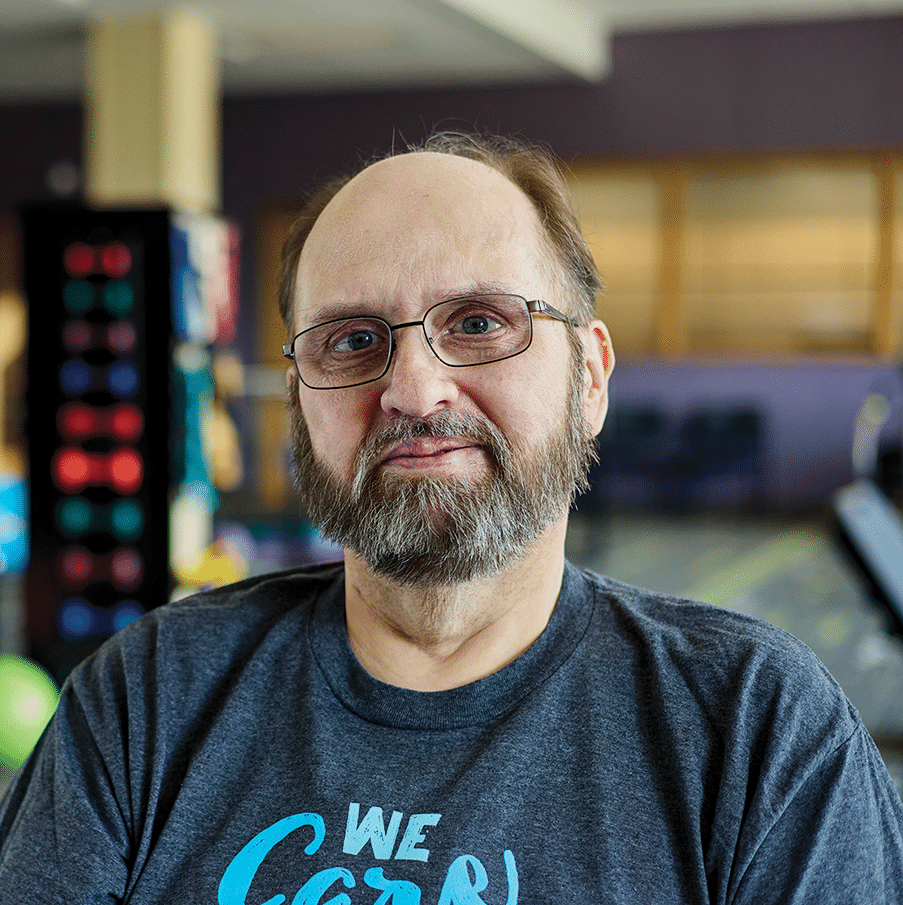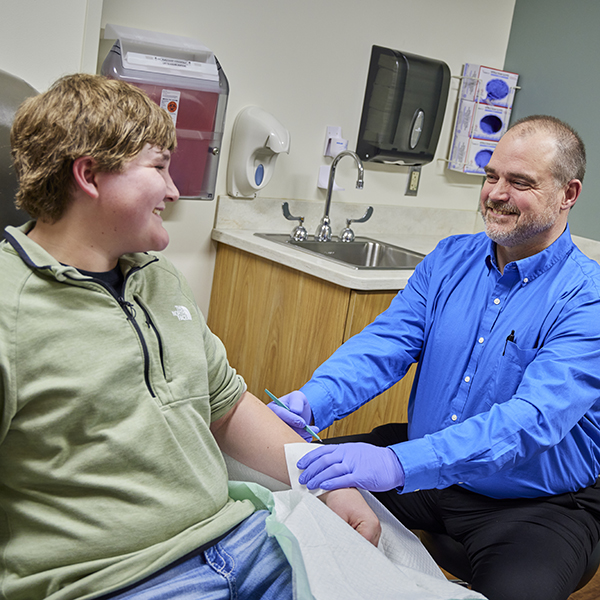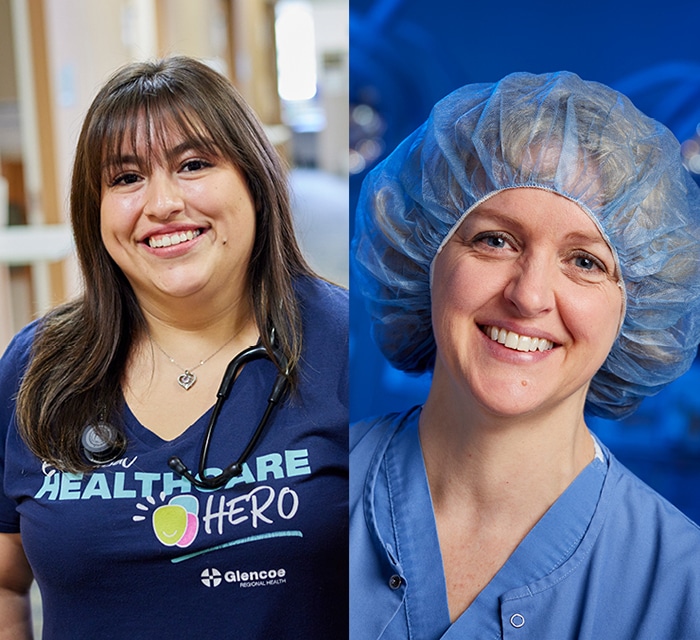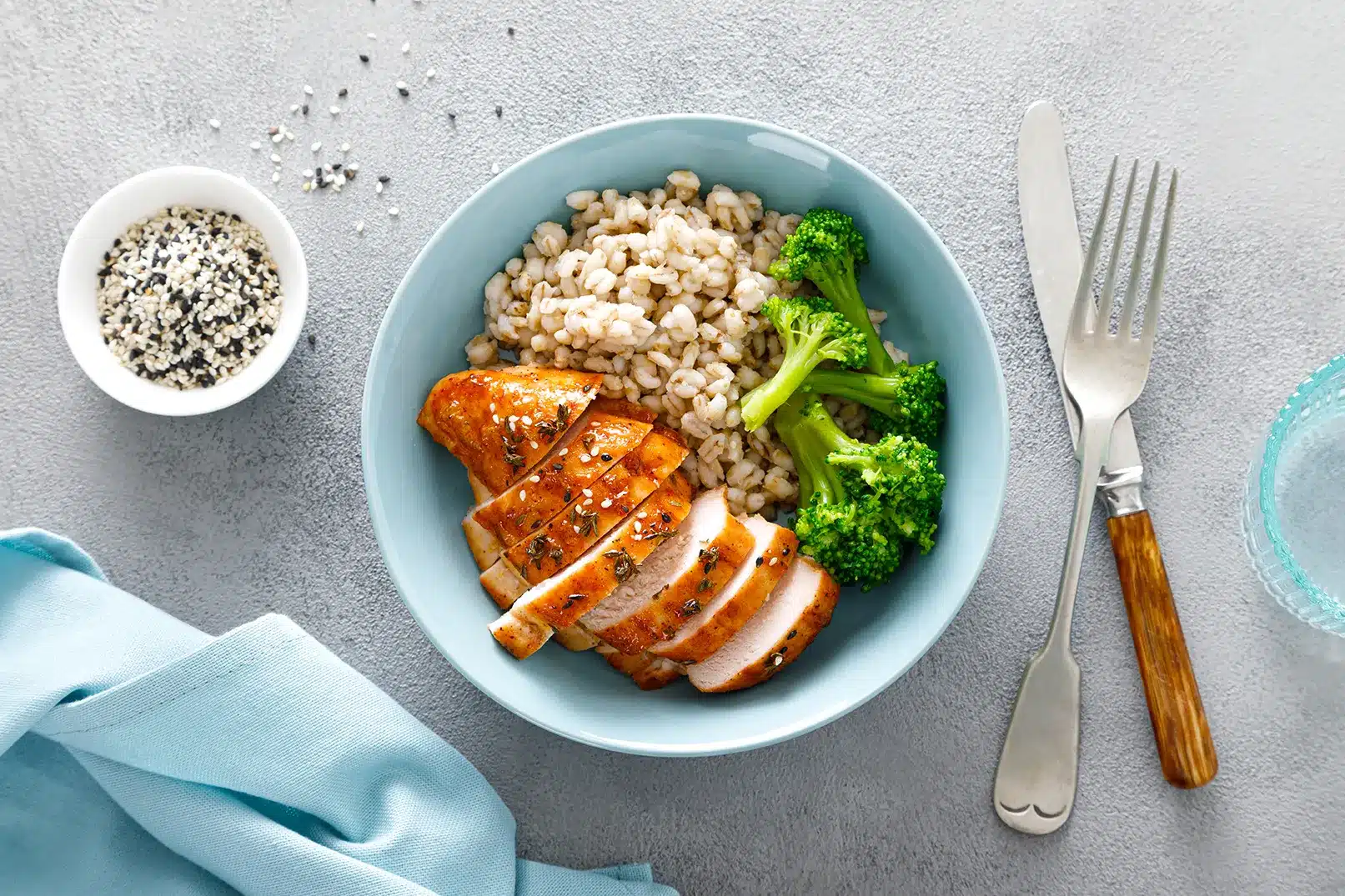
Have you wondered what food is best for healing wounds? Eating the right foods can significantly speed up wound healing, reduce infection risk, and support tissue repair. Your body needs extra nutrients during this time – especially if your wound is chronic, infected, or healing slowly.
Foods for Wound Healing
1. Protein – Essential for Tissue Repair
Protein is a food that helps wound healing because it builds new skin, blood vessels, and immune cells. Aim to eat protein at every meal.
- Lean meats (chicken, turkey, beef)
- Fish (especially salmon, tuna — rich in omega-3s)
- Eggs
- Dairy (Greek yogurt, milk, cheese)
- Legumes (lentils, black beans, chickpeas)
- Protein shakes if you’re not eating enough
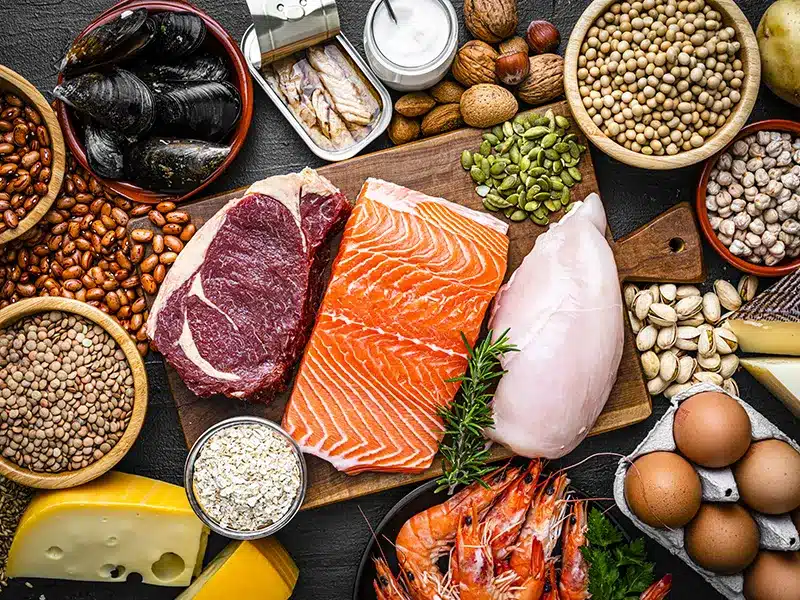
2. Vitamin C – Boosts Collagen and Immune Function
Helps form new tissue and supports your immune system. Vitamin C also helps your body absorb iron — another important nutrient.
- Citrus fruits (oranges, grapefruit)
- Strawberries
- Kiwi
- Bell peppers (especially red/yellow)
- Broccoli
- Tomatoes
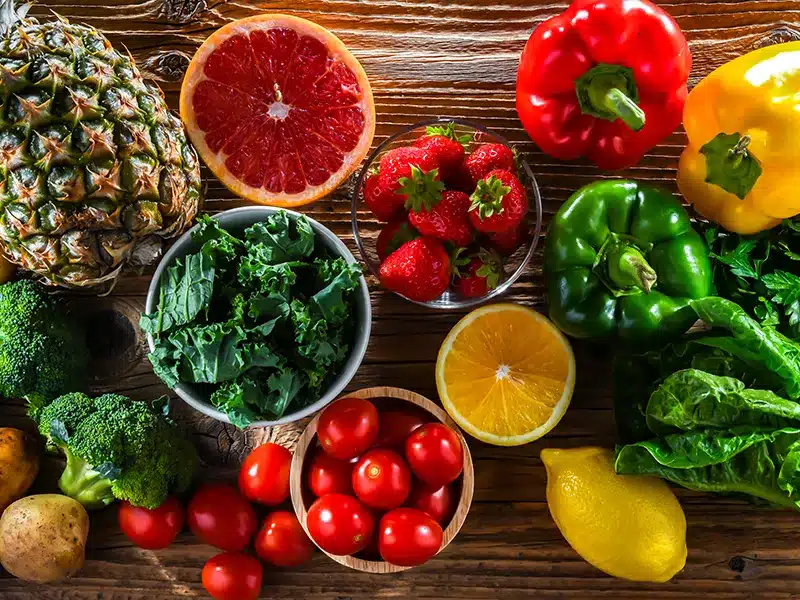
3. Zinc – Supports Cell Growth and Repair
Zinc helps with inflammation control, cell repair, and fighting infection. Note: Too much zinc can interfere with other minerals, so don’t megadose supplements unless your provider tells you to.
- Beef, pork, lamb
- Pumpkin seeds
- Chickpeas and lentils
- Nuts (cashews, almonds)
- Whole grains
- Shellfish (especially oysters)
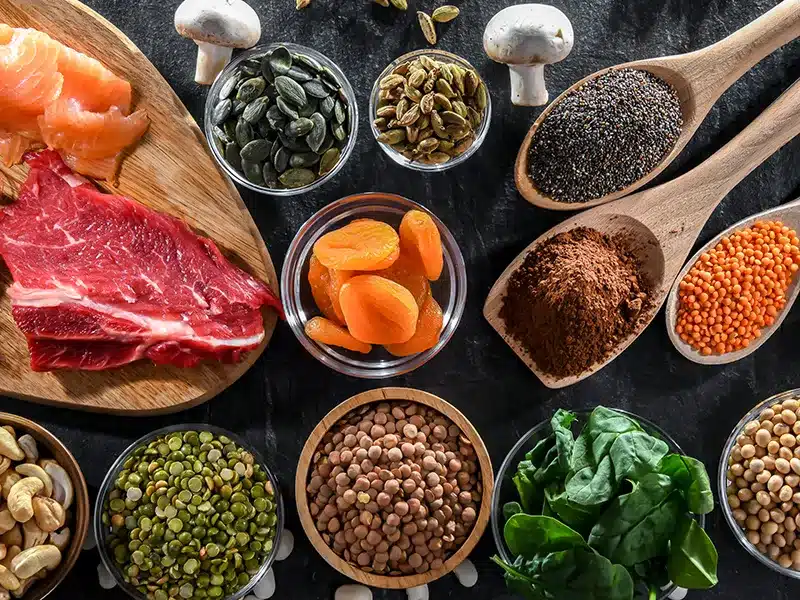
4. Healthy Fats – Reduces Inflammation
Fats help absorb fat-soluble vitamins (A, D, E, K) and reduce chronic inflammation. Avoid: Trans fats, fried foods, excess sugar — they increase inflammation.
- Avocados
- Olive oil
- Fatty fish (salmon, mackerel)
- Nuts and seeds
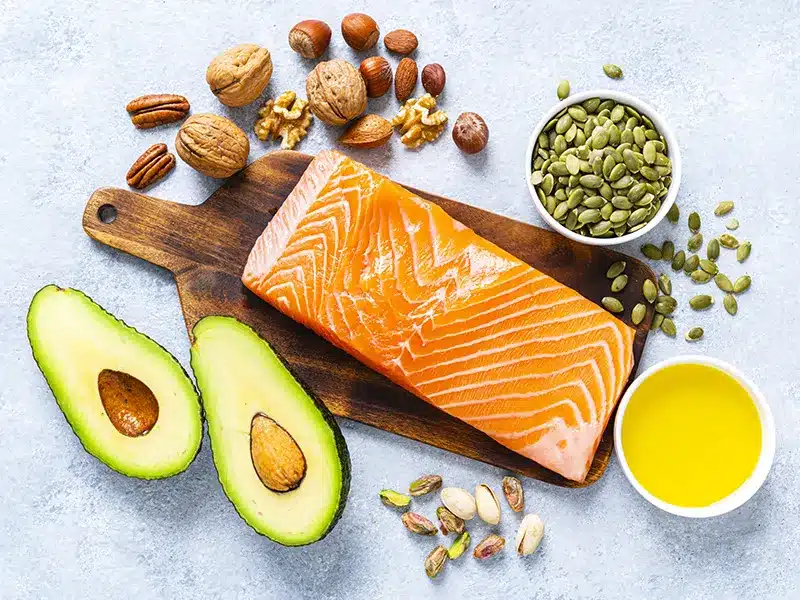
5. Carbohydrates – Fuel for Healing
Carbs are good for would healing they give your body the energy it needs to repair wounds. Low-carb or restrictive diets can slow wound healing — balance is key.
- Whole grains (oats, quinoa, brown rice)
- Sweet potatoes
- Fruit
- Vegetables
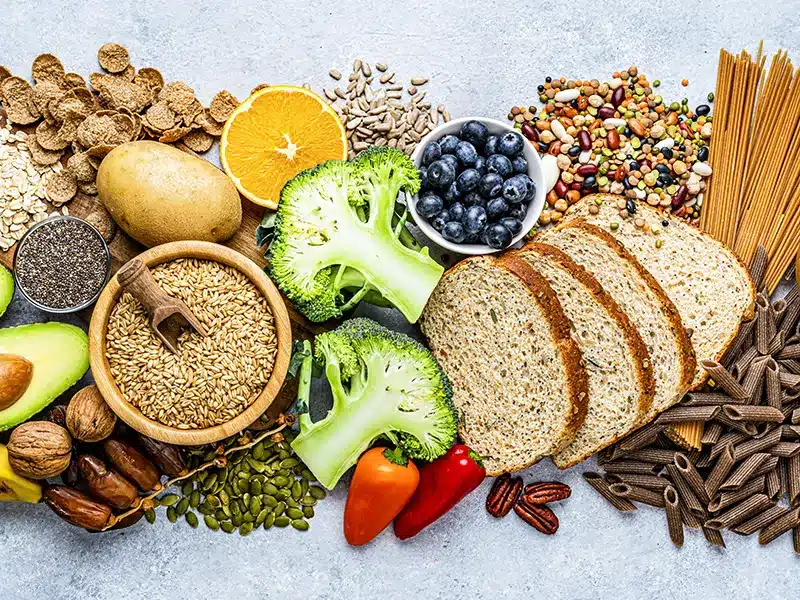
6. Fluids – Prevent Dehydration
Wounds need moisture to heal — dehydration slows this process. Avoid: Too much caffeine or alcohol, which can dehydrate you.
- Water (at least 6–8 cups a day unless restricted)
- Broths
- Electrolyte drinks if you’re losing fluids from the wound
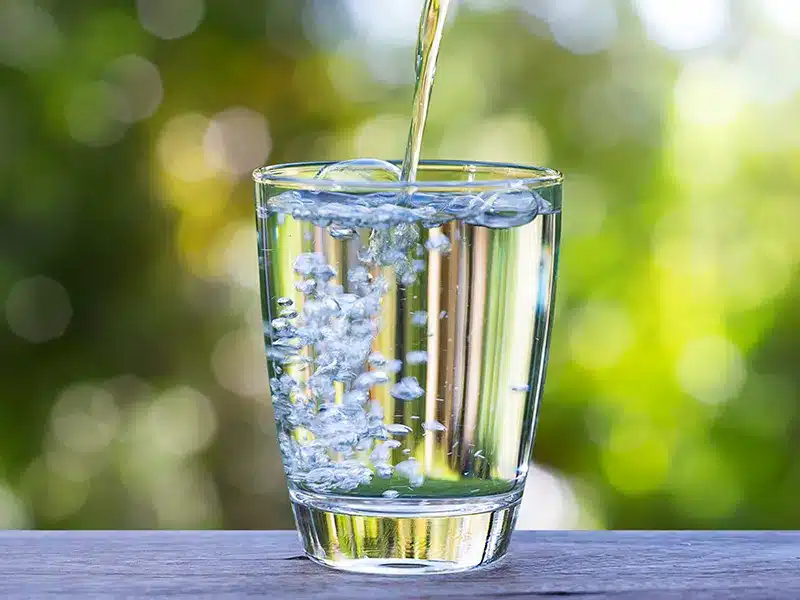
Bonus Nutrients:
- Vitamin A (carrots, sweet potatoes, spinach): boosts skin regeneration
- Iron (red meat, spinach, lentils): helps oxygenate healing tissue
- Vitamin E (nuts, seeds, green leafy vegetables): antioxidant support
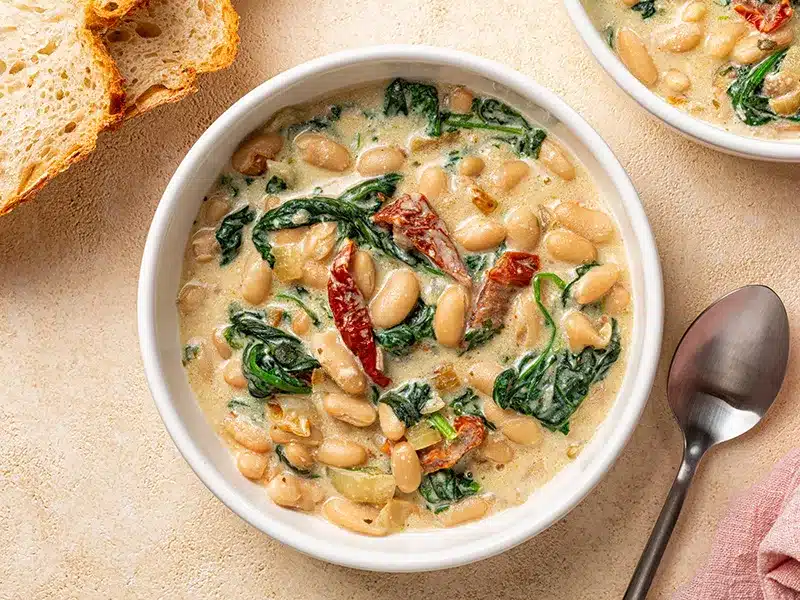
FAQs
Is spicy food bad for wound healing?
Spicy food is not inherently bad for wound healing, but it can sometimes interfere with the process, especially for people with sensitive digestive systems or certain medical conditions. Spices like chili peppers contain capsaicin, which may cause inflammation in some individuals and potentially slow down healing. Additionally, spicy foods can irritate surgical wounds in the mouth or digestive tract. While moderate spice might not harm overall recovery, it’s best to avoid excessive spicy foods during the wound healing process to reduce the risk of irritation and inflammation.
What food to avoid for wound healing?
For optimal wound healing, it’s important to avoid foods that can slow the body’s recovery process. This includes processed foods high in sugar and unhealthy fats, which can increase inflammation and suppress the immune system. Foods with high sodium levels, alcohol, and sugary beverages should also be limited, as they can dehydrate the body and impair nutrient absorption. Avoiding these foods helps promote a better environment for tissue repair and supports the body’s natural healing mechanisms.
What to drink to heal wounds faster?
To heal wounds faster, prioritize drinks that keep you hydrated and support your body with essential nutrients. Water is the most important, as it helps transport oxygen and nutrients to the wound site. Protein-rich smoothies, bone broth, and drinks fortified with vitamins C and A, like orange juice or carrot juice, can also aid tissue regeneration. Additionally, herbal teas like chamomile or green tea may offer anti-inflammatory and antioxidant benefits that support the healing process. Avoid sugary sodas and alcohol, which can delay recovery.
We’re here to help!
Our Wound Care Specialists at Glencoe Regional Health will provide nutrition guidance based on your specific health conditions. To schedule an appointment, call 320-864-7040.
